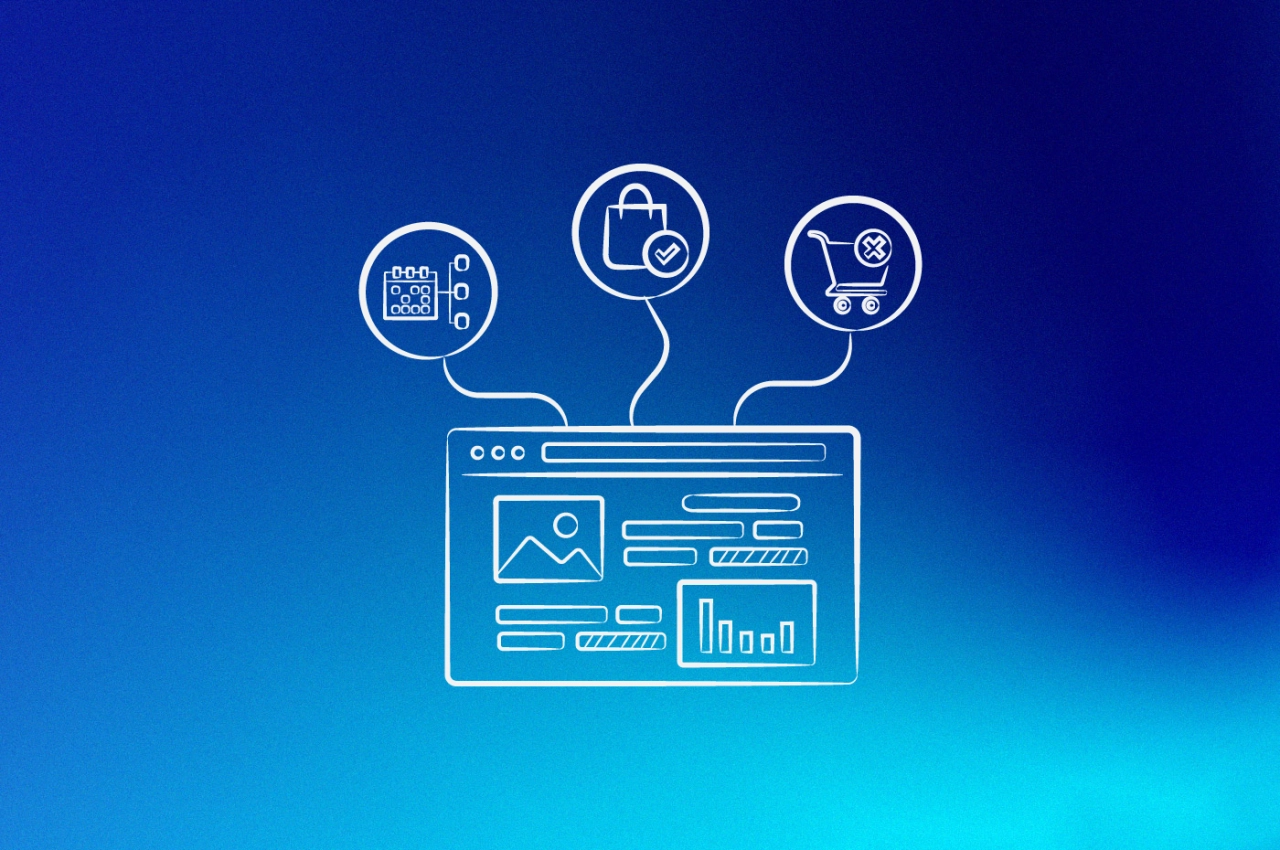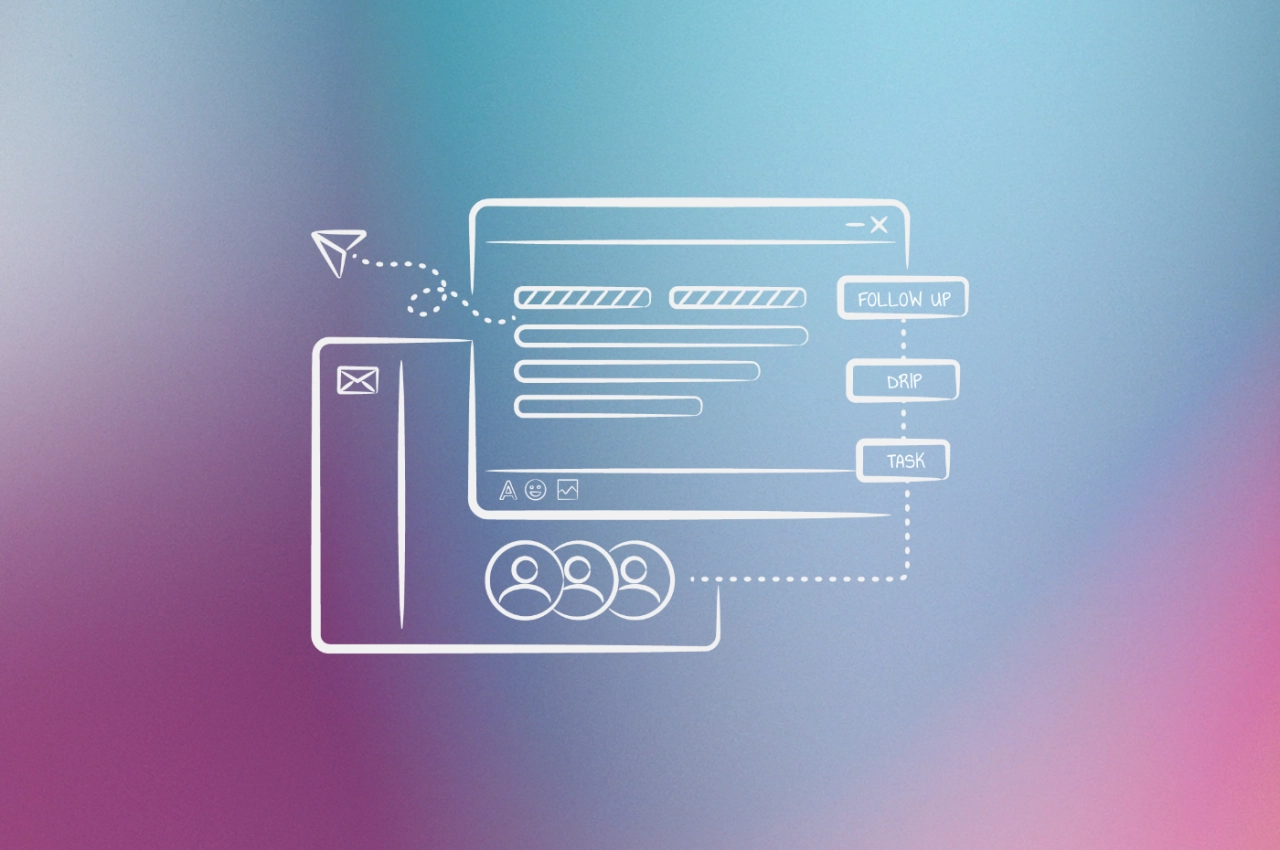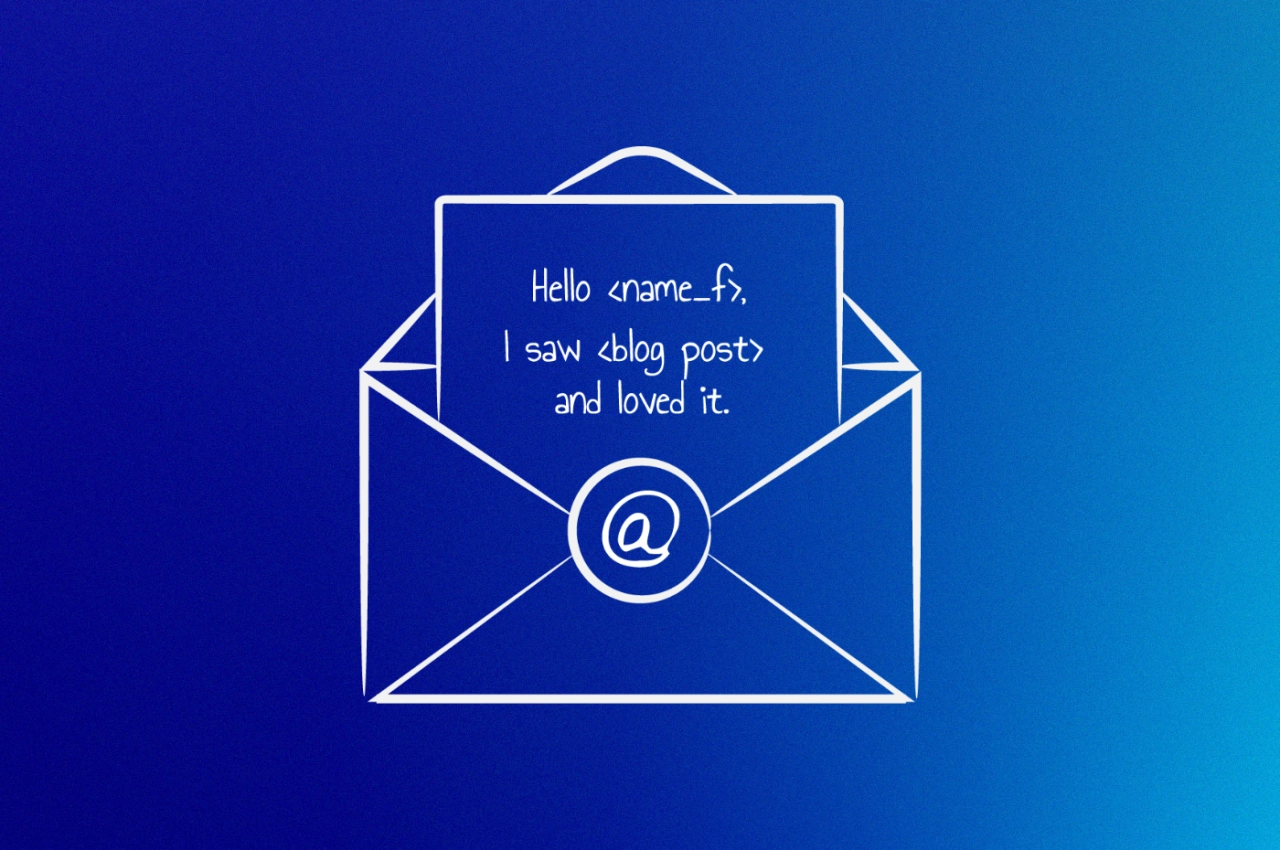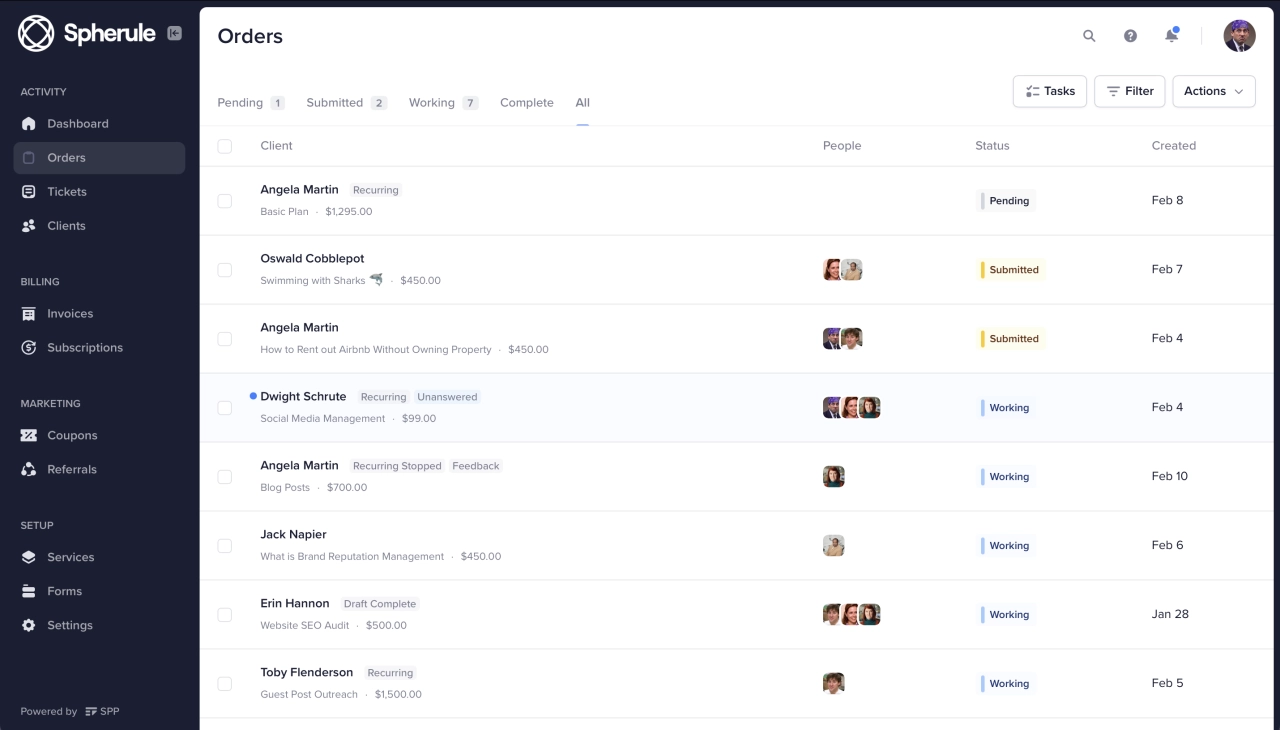- Marketing automation can improve lead generation, results in better lead scoring, and perfects campaign timing.
- Any type of business can use marketing automation, and it helps them reach the right customers at the perfect time.
- While marketing automation brings many advantages, customers and their data need to be protected according to local laws.
In the early stages of building your agency, marketing automation rarely tops the priority list. Yet this sector has quietly grown to a multi-billion industry that’s projected to triple by 2027, according to Statista’s market research.
Today’s marketing automation goes far beyond email campaigns, providing integrated solutions that optimize both marketing and sales operations. For agency owners aiming for efficiency and scalability, understanding these tools has become increasingly important.
In this article, I’ll introduce you to the topic of marketing automation, its practical applications, and how implementing the right solutions can offer measurable benefits to your growing agency.
Common features of marketing automation platforms
Let’s face it, running a marketing agency means juggling dozens of campaigns across multiple clients—all while trying to prove your value and deliver measurable results. Marketing automation platforms help you do more with less, but not all solutions offer the same capabilities. Let’s break down the essential features that actually move the needle for agencies.
Campaign management at scale
Most of the repetitive or very data-heavy tasks a marketer handles can be automated (at least to a certain degree.) What’s more, automation tools are also entering the creative side of marketing, with AI writing (though it’s wise to check for plagiarism) and designing tools, voice-assisted customer service, and more.
Modern automation platforms offer comprehensive campaign management tools that let you:
Build multi-channel campaigns from a single dashboard: Instead of jumping between five different tools, you can orchestrate email, social, SMS, and web campaigns in one place. For agencies managing multiple clients, this centralized approach means fewer passwords to remember and fewer systems to learn.
Create templates and workflows that you can replicate: Smart agencies know that reinventing the wheel for each client is a profitability killer. Look for platforms that let you build campaign templates once, then customize them for different clients. A good email nurture sequence for one client can often work for another with minor adjustments.
Schedule and automate based on triggers, not just time: Basic scheduling is table stakes—what separates powerful platforms is their ability to trigger campaign elements based on user behaviors. This means you can set up a campaign once, and it continues working 24/7, sending the right message when someone downloads a guide, abandons a cart, or hits a usage milestone.
A/B test everything without manual calculations: The best platforms let you test multiple variants of your campaign elements—from subject lines to CTAs to sending times—and automatically funnel more traffic to the winning version. This feature alone can boost campaign performance by 10–30% with essentially zero extra work.
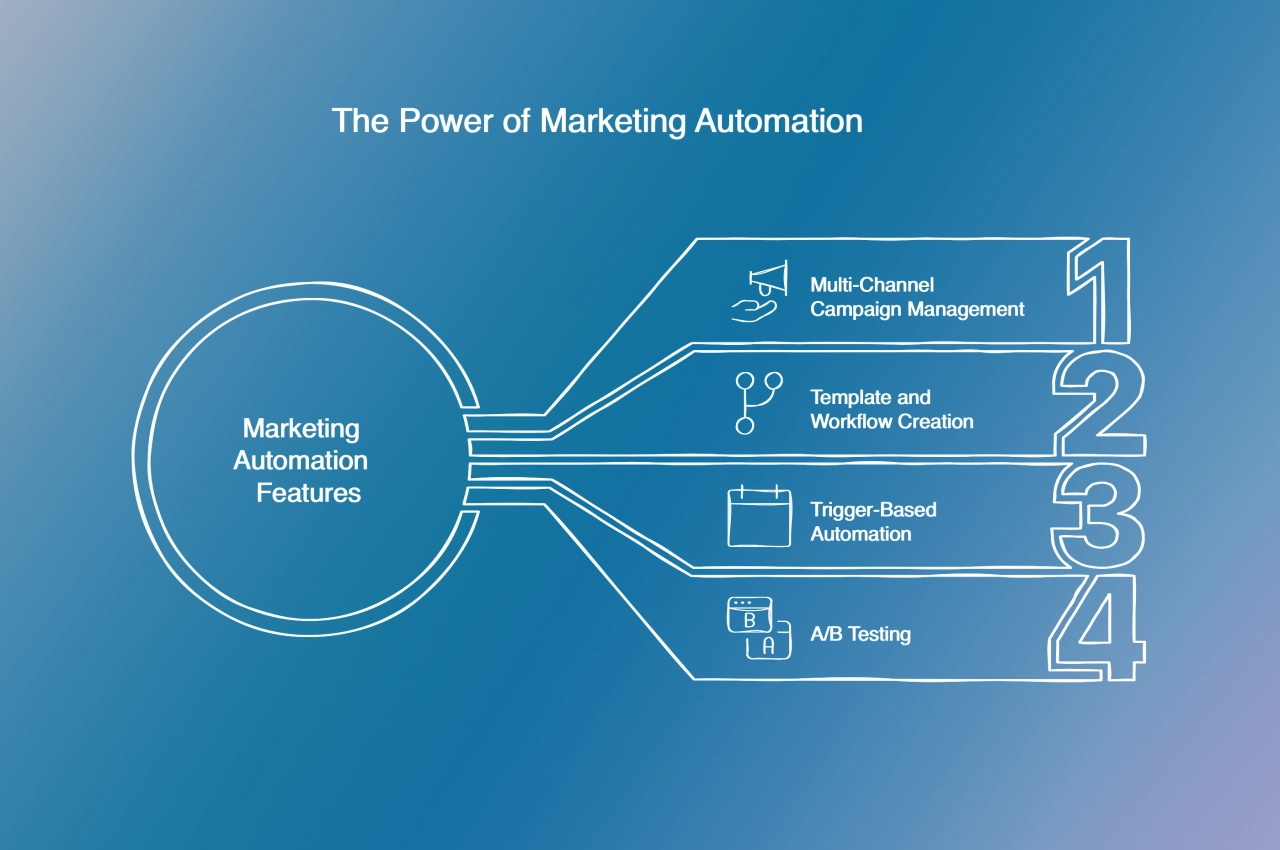
For agencies, the key is finding a platform that balances powerful features with ease of use. Your team needs to be able to hand off campaigns between account managers without extensive retraining, and you need to onboard new clients quickly without a massive setup investment.
Lead nurturing that works
Generating leads is one thing—nurturing them into paying customers is where agencies truly prove their worth. The right automation platform makes this process practically hands-free:
Progressive profiling builds rich contact records over time: Instead of overwhelming prospects with long forms, good automation platforms gradually collect more data through progressive profiling. Each interaction adds more details to contact records, giving you deeper insight without creating friction.
Behavioral scoring identifies sales-ready leads: Rather than guessing which leads deserve attention, automation platforms can score leads based on their engagement with your content, website visits, email opens, and other behaviors. This helps your clients’ sales teams focus on prospects who actually show buying intent.
Personalized content paths adapt to individual interests: One-size-fits-all nurturing is dead. Modern platforms let you create dynamic content paths that adapt based on a prospect's industry, role, previous interactions, or content preferences. For agencies, this means you can build sophisticated nurture campaigns that feel personally crafted for each recipient.
Re-engagement campaigns recover fading prospects: Every lead pool contains prospects who’ve gone cold. Automation platforms can identify inactive contacts and trigger specialized re-engagement campaigns—sometimes recovering up to 15% of otherwise lost opportunities.
The agencies seeing the most success with lead nurturing aren't treating it as a separate function—they're integrating it with their clients’ CRM and sales processes. Look for platforms that offer strong CRM integrations so you can pass enriched leads directly to sales teams at exactly the right moment.
Analytics beyond the vanity metrics
The true power of marketing automation comes when you can prove exactly how your campaigns impact the bottom line. Modern platforms offer analytics capabilities that go far beyond opens and clicks:
Attribution modeling shows which touchpoints drive conversions. Basic platforms might tell you which email got clicked, but advanced solutions can track the entire customer journey across channels and campaigns. This multi-touch attribution helps agencies prove their value by showing exactly how their work influences purchasing decisions.
Revenue impact reporting ties marketing directly to sales. The most powerful platforms connect marketing activities to actual revenue generation—showing not just how many leads you generated, but how much revenue those leads produced. For agencies, this type of reporting transforms your status from "expense" to "investment" in clients' eyes.
Funnel analytics identify conversion bottlenecks. Where are prospects dropping out of the journey? Good automation platforms visualize your marketing funnel and highlight areas where conversion rates are lagging. This lets you focus optimization efforts precisely where they’ll have the biggest impact.
Custom dashboards for different stakeholders. Agency reporting needs to work on multiple levels: strategic overviews for client executives, tactical data for marketing managers, and granular metrics for your own team. The best platforms let you create role-based dashboards so everyone sees exactly what they need.
Predictive analytics forecast future performance. Advanced platforms now use AI to analyze historical campaign data and predict future outcomes. This helps agencies set realistic client expectations and allocate resources to initiatives with the highest projected return.
For agencies using SPP alongside marketing automation platforms, you can embed these analytics directly in your client portal. This gives clients 24/7 access to their campaign performance without generating more admin work for your team.
How is marketing automation used and by whom?
Marketing automation is used by digital marketers. Most marketing automation platforms are meant to make marketing tasks easier—not necessarily replace marketers or human work in any way.
For instance, if you’re running a Black Friday campaign, you can use an automation tool to:
segment your current user base
create a targeted email campaign to reach out to current customers
schedule posts and messages ahead of time
use a social listening tool to create an audience, target them with specific ads, and then nurture them via email automation
analyze and track the performance of your campaigns
score leads and create reports
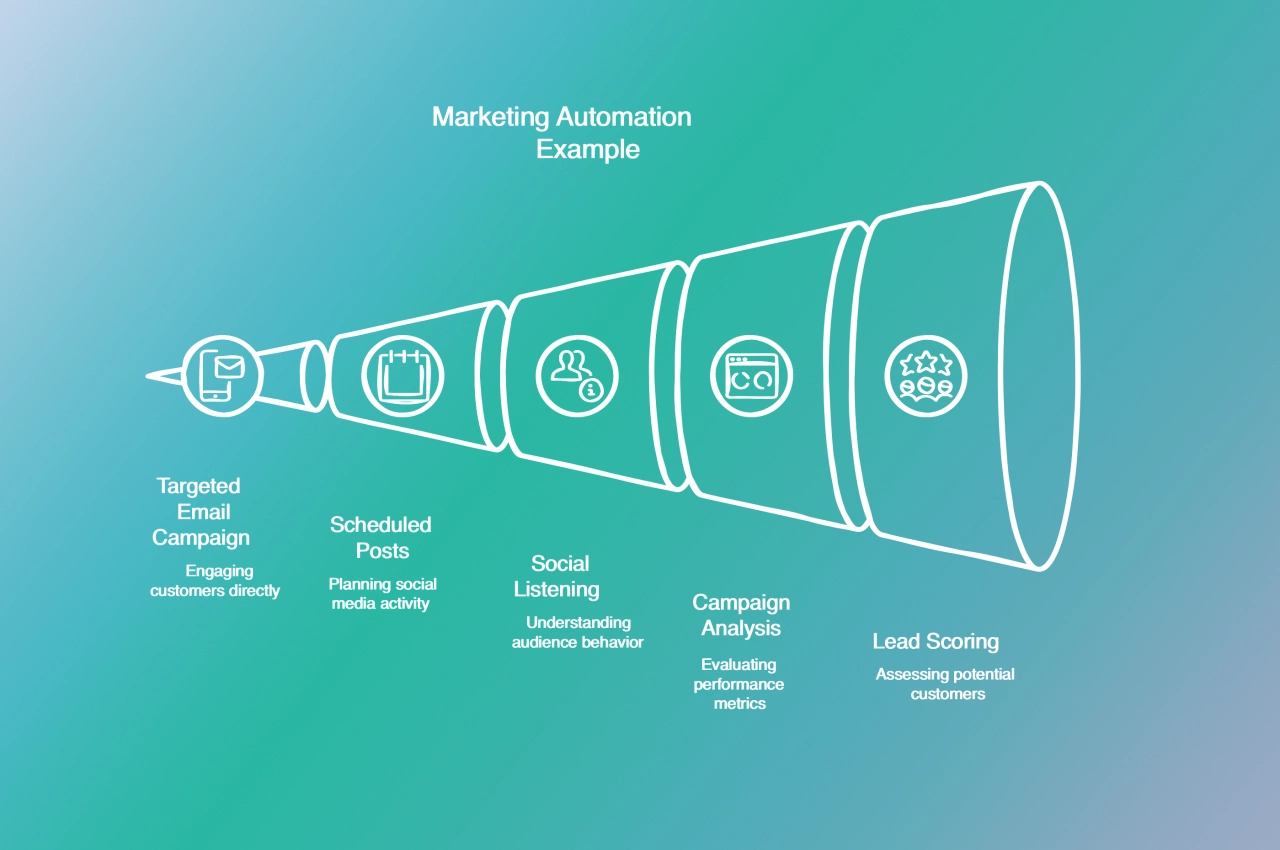
Pretty much every business can use marketing automation. The bakery next door could be using it for smart branding campaigns to help them stay afloat and not be assimilated by large supermarket conglomerates. A B2B software as a service company can use automation to nurture their leads and build relationships with potential customers.
And of course, all of the above is just scratching the surface of what marketing automation is, who can use it, and how. In a world drowning in data where marketers are more pressured than ever, marketing automation is one of the few things that really does deliver on its promise.
When done right, marketing automation helps businesses beat through the noise, reach the right customers, and incentivize them to convert, evangelize, and stay loyal to your business. Regardless of whether you’re in B2C or B2B marketing, automation will bring efficiency to your workflow, save you time, and help your team perform at their best.
How does marketing automation affect your customers?
Marketing automation makes life easier—for marketers, at least.
It’s important to remember, however, that all marketing strategies should have one guiding light: the customer.
No matter how good, all the benefits of a marketing automation solution mean zero if you’re not putting your customers at the very core of all your digital marketing ventures. More even, consider the effects your online marketing efforts have on your customers (existing and prospects alike.)
In general terms, you should aim to improve the customer journey. Automation exists not to generate more spam, but help the consumer find their way in a seemingly endless maze of information and options. That’s marketing automation (and, generally, marketing) done right.
As for negative effects, consider your customers’ privacy and data security. Make sure that you’re compliant with GDPR, CCPA, and other regulations.
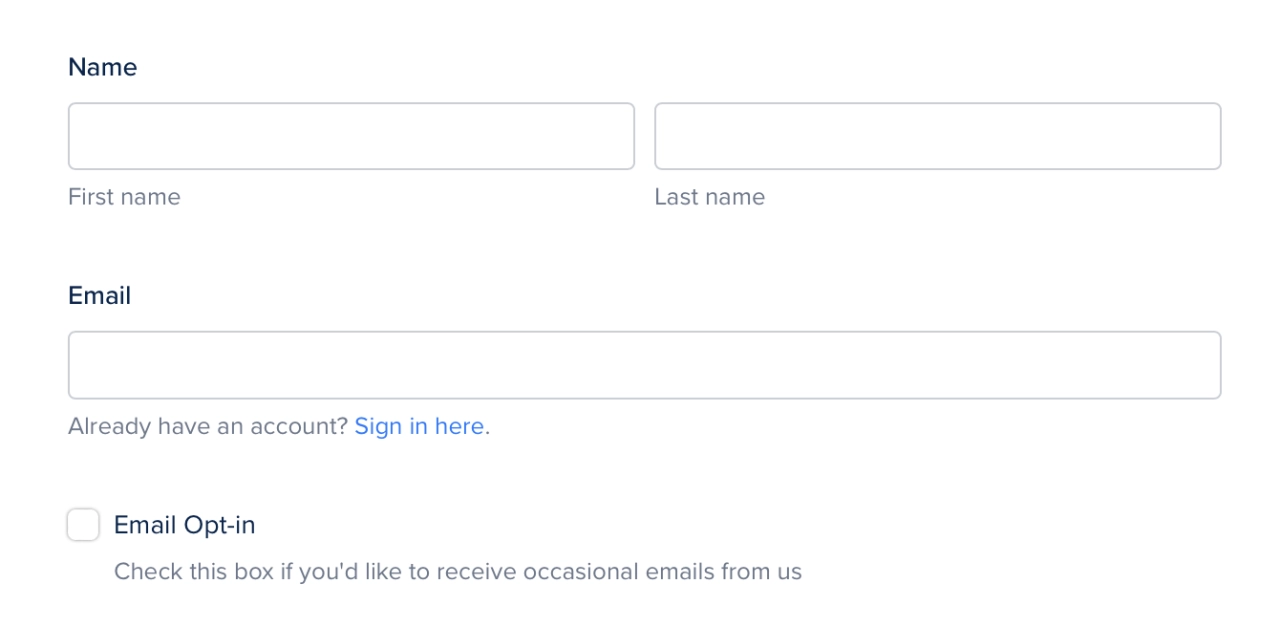
And even in the very unlikely scenario you’re affected by no data privacy regulation, always make sure you’re transparent with your customers, and you keep their data safe. At a bare minimum, you should provide them with ways to:
opt-out of your email and SMS lists
delete their data
share the collected data with them (on request)
Good to know: EU-based clients can request an export of their account data or request their account to be deleted in Service Provider Pro.
And most importantly, make sure your automation software is secure. The best marketing technology goes beyond basic security and helps you ensure that every customer interaction is safe.
When should you implement marketing automation?
Alright, let’s say you’re sold on the idea of marketing automation. When should you invest in it, and how can you make marketing automation work for you?
The bad news is that successful marketing automation cannot function in a data void. In other words, if you don’t have website traffic (or any other top of the funnel strategy), you won’t reap the full benefits of marketing automation.
Get Integration Help
Looking for custom solutions? See how our certified SPP experts can help you.
Sure, you could send an email or two, and even create some nurturing email campaigns. But if you don’t have an email list to send those campaigns to, it’s all rather pointless.
So, to answer the question in this subtitle: you should implement marketing automation when you have enough data to work with. All the finest automation features in the world can’t save an empty contacts list—so start small, build a proper marketing plan and start running digital marketing campaigns likely to capture email addresses and contact details.
Consider marketing automation when your business is ready to scale your agency. Once the basics are in place, you should be able to easily integrate marketing automation with your other marketing activities.
Conclusion
Automation promises a lot. And for the largest part, it delivers.
But while marketing automation features might seem no short of tech magic, the truth is that how you use marketing automation tools can matter more than anything. Clean data, privacy, a focus on customers, and marketing and sales teams ready to collaborate—they will all have a say in how successful you are.

